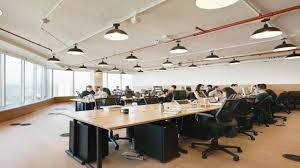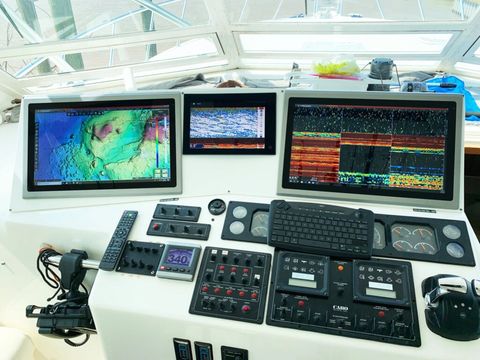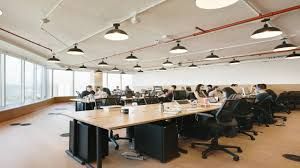Discover the Essentials of Renting the Perfect Office Space: A Comprehensive Guide
Renting office space is one of the most important decisions for organizations, entrepreneurs, and startups. The concept exists because businesses need dedicated environments that support productivity, collaboration, and professional identity. Over time, the practice has expanded beyond traditional leases to flexible arrangements such as coworking hubs, shared spaces, and managed offices.
The demand for suitable work environments has grown with the rise of hybrid work, digital-first companies, and global expansion. Organizations no longer look at office space simply as a physical location but as a strategic resource to enhance brand presence, culture, and operational efficiency.

Why Office Space Matters Today
Office space plays a critical role in how businesses operate. It affects employees, clients, and even brand reputation. Choosing the right space can solve challenges such as:
-
Employee productivity: A well-designed office reduces distractions and enhances collaboration.
-
Client perception: The location and setup influence how customers and partners view the business.
-
Scalability: Flexible rental options allow organizations to expand or downsize as needed.
-
Work-life balance: Hybrid setups combine remote and on-site work for better outcomes.
For small businesses, it provides legitimacy and professional credibility. For larger companies, it supports global operations and team alignment.
Recent Trends and Updates
The office rental landscape has changed significantly in the past few years.
-
2024 hybrid adoption: More businesses worldwide shifted to hybrid work, blending remote and office-based tasks. Reports in mid-2024 highlighted that nearly 60% of global firms adopted flexible models.
-
Sustainability focus: Green-certified buildings and eco-conscious workspaces are becoming priorities.
-
Technology integration: Smart offices with IoT sensors, energy tracking, and digital meeting tools are increasingly common.
-
Flexible lease models: Companies now prefer shorter commitments, opting for coworking spaces or serviced offices.
These trends show how the industry is evolving beyond simple rentals to comprehensive workplace solutions.
Policies and Regulations Impacting Office Rentals
Laws and government regulations strongly influence how office rentals function. Key areas include:
-
Lease agreements: Most countries regulate rental contracts, ensuring transparency in terms such as duration, security deposits, and notice periods.
-
Zoning laws: Governments set rules about where businesses can operate, affecting location choices.
-
Health and safety standards: Offices must comply with ventilation, fire safety, and accessibility requirements.
-
Tax implications: In some regions, companies receive tax deductions for office rent or maintenance costs.
-
Sustainability compliance: Green building codes are being introduced, especially in Europe, the U.S., and parts of Asia.
Before finalizing an office space, businesses must review local laws to ensure compliance and avoid disputes.
Helpful Tools and Resources for Office Rentals
Several resources can simplify the process of finding and managing office spaces.
-
Real estate platforms: Websites that list available office spaces with details on size, location, and lease terms.
-
Workspace calculators: Tools that help estimate how much space is required based on employee count and facilities.
-
Budget planners: Apps for tracking rental expenses and comparing options.
-
Virtual tours: Digital walkthroughs for evaluating spaces remotely.
-
Coworking directories: Global listings that allow teams to compare flexible office providers.
These tools save time, reduce risk, and provide data-driven insights for decision-making.
Factors to Consider When Renting an Office Space
When exploring options, businesses should assess multiple aspects:
-
Location: Proximity to clients, transport, and talent pools.
-
Size and layout: Ensuring enough room for growth, meetings, and collaboration.
-
Technology readiness: Availability of internet, conference facilities, and security systems.
-
Costs beyond rent: Utilities, maintenance, parking, and service charges.
-
Flexibility: Options to scale up or move out without heavy penalties.
Below is a simple comparison of traditional and flexible office rentals:
| Aspect | Traditional Lease | Flexible/Coworking Space |
|---|---|---|
| Lease Length | 3–10 years | Monthly or yearly |
| Setup Costs | High | Low to moderate |
| Scalability | Limited | Easy to expand or reduce |
| Amenities | Basic, add-ons | Included in packages |
Common FAQs
What is the average duration of an office rental?
Traditional leases usually run between 3–10 years, but flexible options allow shorter terms such as monthly or yearly agreements.
How much space should a company allocate per employee?
On average, businesses allocate 100–150 square feet per person, depending on layout and facilities.
Are coworking spaces suitable for established businesses?
Yes. Many corporations use coworking hubs for satellite teams, project-based work, or expansion into new markets.
What legal aspects should I check before signing a lease?
Review zoning compliance, rental duration, exit clauses, maintenance responsibilities, and tax implications.
Can office space be customized?
Most traditional leases allow customization with landlord approval, while flexible spaces usually come pre-furnished but may offer limited personalization.
Conclusion
Renting office space has transformed into a strategic decision rather than a routine business expense. With shifting work models, regulatory frameworks, and technological advances, companies must carefully evaluate their choices.
By exploring recent trends, understanding legal frameworks, and using practical tools, businesses can make informed decisions. Whether choosing a traditional lease or a flexible workspace, the goal remains the same: creating an environment that enhances productivity, supports growth, and strengthens professional presence.





